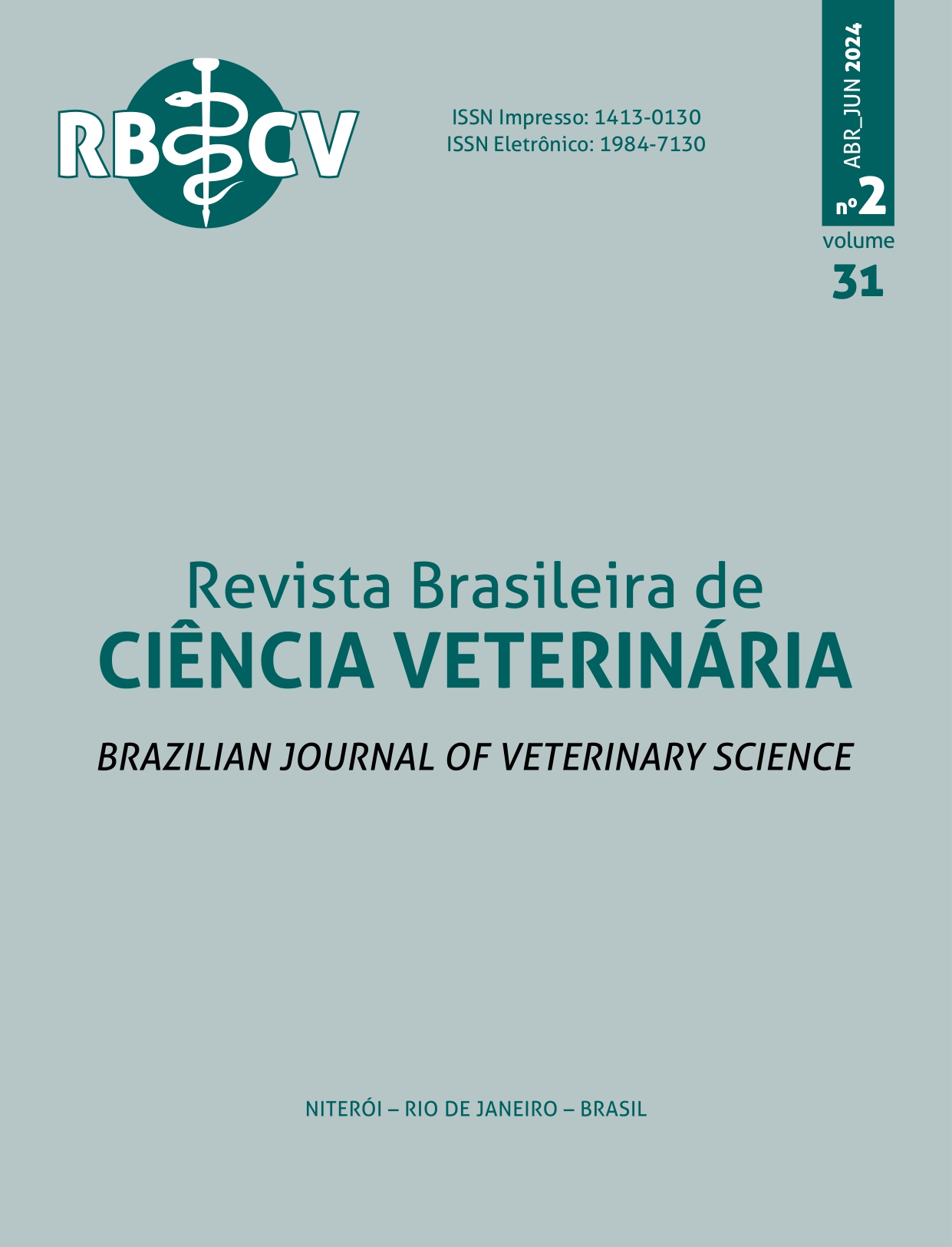Peso inicial sobre o desempenho e desenvolvimento de órgãos de frangos
Initial weight on the performance and organ development of chickens
Mots-clés :
abate, avicultura, conversão alimentar, viabilidadeRésumé
Objetivou-se avaliar o efeito do peso inicial no desempenho e desenvolvimento de órgãos do sistema digestório de frangos. Foram alojados 450 pintos de corte (machos e fêmeas), da linhagem Cobb, distribuídos em delineamento inteiramente casualizado com cinco tratamentos, cinco repetições e dezoito aves por unidade experimental. Os tratamentos avaliados foram cinco categorias de peso, sendo: 35; 38,5; 40,5; 45 e 50 g. As variáveis de desempenho zootécnico avaliadas foram: peso médio, ganho de peso, consumo de ração e conversão alimentar. Aos quinze dias de idade, cinco aves por tratamento foram eutanasiadas para avaliação do desenvolvimento dos órgãos: peso da moela, proventrículo, pâncreas, fígado, comprimento e peso do intestino (delgado e grosso). Os dados foram submetidos à análise de variância e as médias comparadas pelo teste Tukey a 5% com auxílio do programa estatístico R. Houve efeito do peso inicial do pinto de corte para as variáveis de desempenho. Pintos com 50 g iniciais apresentaram maior peso vivo, maior consumo de ração e ganho de peso, na fase pré-inicial. Pintos com 45g apresentaram maior peso de intestino delgado aos 15 dias. Aos 21 dias, o peso final e consumo de ração mostraram diferença estatística. O efeito do peso inicial do pinto sobre o peso final do frango diminuiu com o avanço da idade das aves, em que pintos com pesos iniciais de 35 a 50 g apresentaram desempenho semelhante na fase final. Conclui-se que o peso inicial não interfere nos resultados de desempenho ao final do ciclo produtivo.


